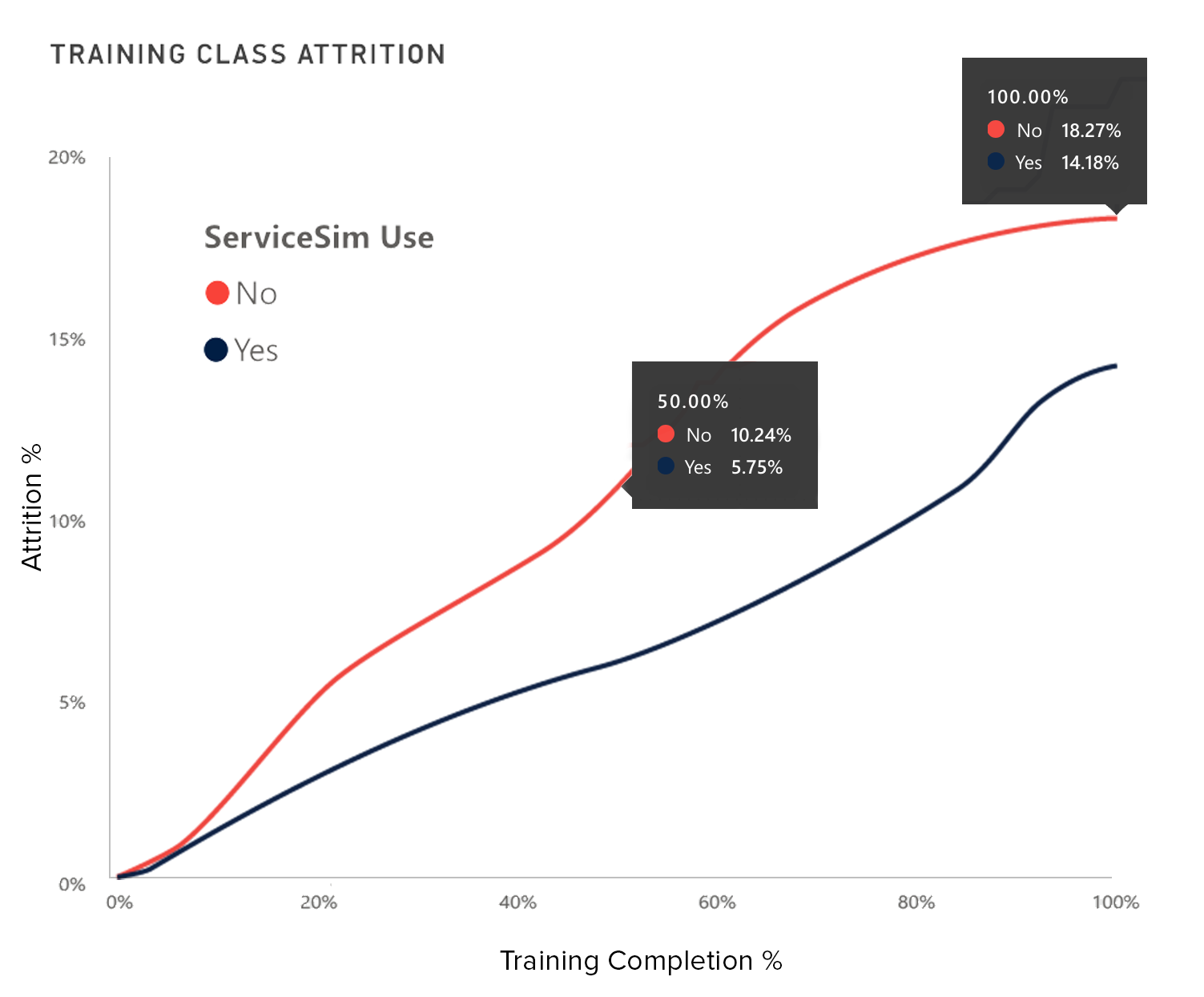Contact centers thrive on metrics. Average Handle Time (AHT), First Call Resolution (FCR), Customer Satisfaction (CSAT)—these numbers provide valuable insights into performance and efficiency. But when organizations focus too much on hitting the numbers, agents can feel like cogs in a machine, leading to disengagement, burnout, and ultimately, higher attrition.
So, how do you strike the right balance between operational efficiency and agent well-being? Here are three key strategies:
- Make Metrics a Tool, Not a Weapon
KPIs should be used to guide improvement, not punish performance. Instead of rigid benchmarks, use them as indicators of areas where agents may need additional training or support. Providing coaching based on data—not discipline—helps agents see metrics as a path to success rather than a source of stress. When agents understand how KPIs impact customer experience and business outcomes, they’re more likely to buy into the process and engage in self-improvement.
Moreover, leaders should provide context when discussing performance data. Instead of simply stating, “Your AHT is too high,” they can frame it as, “Let’s look at what’s contributing to longer handle times and identify ways to make interactions more efficient while maintaining quality.” This approach makes metrics feel like an opportunity rather than a threat.
- Align Performance Goals With Employee Development
When metrics become the sole focus, personal growth takes a back seat. Shift the narrative by tying KPIs to professional development. For example, if an agent struggles with AHT but excels in customer rapport, offer targeted coaching rather than forcing strict time constraints. Investing in skills development keeps agents engaged and motivated.
Providing personalized development plans and continuous learning opportunities can also help agents feel more connected to their work. Instead of using metrics to set arbitrary limits, leaders should use them to help employees identify strengths and areas for growth. When agents see their development as a priority, they are more likely to be invested in meeting performance goals.
- Foster a Culture of Collaboration, Not Competition
Healthy competition can be motivating, but an overemphasis on leaderboards and rankings can create a cutthroat environment. Instead, encourage teamwork by rewarding collective achievements. Recognizing both individual and team contributions fosters a culture where agents support one another rather than compete at the expense of service quality.
Leaders can also encourage knowledge sharing by implementing mentorship programs or peer coaching. When experienced agents assist newer ones in improving their skills, it benefits the entire team. Furthermore, incorporating team-based incentives rather than solely individual rewards helps shift the focus from personal success to collective growth.
- Listen to Agent Feedback and Adjust Accordingly
Metrics should be a two-way street. Agents should have opportunities to provide input on how performance targets impact their work experience. Regular check-ins and anonymous surveys can help leadership understand which KPIs feel realistic and which may be contributing to burnout.
By making adjustments based on agent feedback, organizations can create a healthier work environment that prioritizes both efficiency and well-being. For instance, if a metric is consistently causing frustration or anxiety, consider revisiting how it is measured or shifting focus to a more balanced approach.
See how ServiceSim works in 90 seconds:
Operational efficiency and agent morale don’t have to be at odds. When used strategically, metrics can enhance performance while ensuring employees feel valued. By reframing KPIs as tools for growth, aligning them with development, fostering collaboration, and actively listening to agent feedback, contact centers can create a workplace where both efficiency and employee satisfaction thrive.
Looking for a way to support agent development while maintaining performance? ServiceSim offers a training solution that helps agents improve their skills in a low-pressure environment.
SUBSCRIBE FOR EMAIL UPDATES

